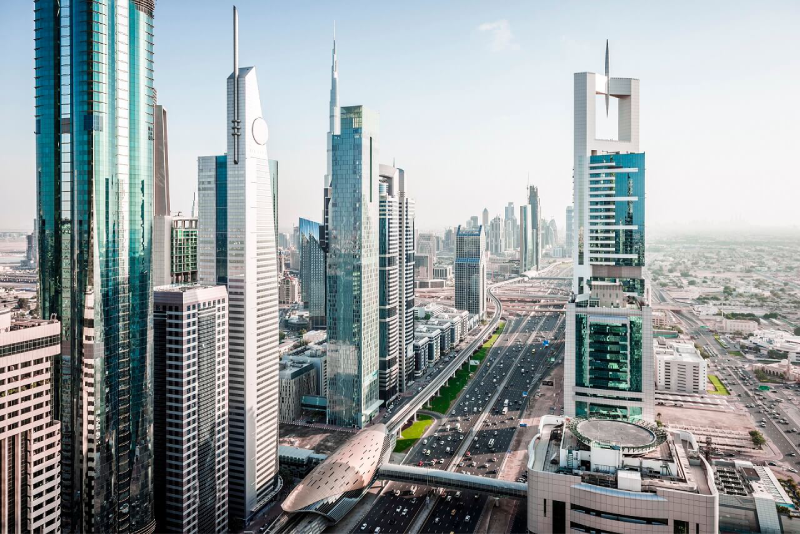
If you've been dreaming of owning a property in Dubai, it's essential to understand the legal requirements involved in the process. Dubai's real estate market offers an array of opportunities for both residents and international investors, but navigating the legal landscape can be complex. From understanding property ownership rights to registration procedures and documentation, this article aims to provide you with a comprehensive guide to the legal requirements for buying property in Dubai.
With a dynamic and robust real estate sector, Dubai has implemented stringent regulations to protect both buyers and sellers. Whether you're interested in purchasing a villa, apartment, or commercial space, being well-versed in these legal requirements is crucial to ensure a smooth and secure transaction.
In this article, we will delve into the key elements of property buying in Dubai, including the requirement for a valid residency visa, the role of the Dubai Land Department, financing options, and the importance of due diligence. By the end, you'll have a clear understanding of the legal framework involved in buying property in Dubai, empowering you to make informed decisions and turn your dreams into reality.

Understanding the different property types in Dubai
Before delving into the legal requirements for buying property in Dubai, it's important to understand the different property types available in the Emirate. Dubai offers a diverse range of properties, including villas, apartments, townhouses, and commercial spaces.
Villas in Dubai are standalone properties, often found in gated communities or private compounds. They offer ample space and privacy, making them popular among families and those seeking a luxurious lifestyle.
Apartments, on the other hand, are units within residential or mixed-use buildings. They come in various sizes and configurations, catering to different budgets and preferences. Apartments are the most common type of property in Dubai and are available in both freehold and leasehold areas.
Townhouses are similar to villas but are usually part of a row of houses in a community. They offer a balance between the space of a villa and the affordability of an apartment, making them an attractive option for many buyers.
Commercial spaces include offices, retail units, and warehouses. Dubai's thriving business environment makes commercial properties a lucrative investment opportunity for entrepreneurs and investors.
Understanding the different property types helps buyers determine their preferences and align them with their budget, lifestyle, and investment goals.

The role of the Dubai Land Department
The Dubai Land Department (DLD) plays a critical role in the legal framework for property ownership in Dubai. As the regulatory authority, the DLD oversees all real estate activities, including property registration, regulation, and dispute resolution.
One of the key responsibilities of the DLD is maintaining the official property register, known as the Dubai Real Estate Register. This register serves as a central database that records all property transactions, ownership details, and legal documentation. It ensures transparency and prevents fraudulent practices in the real estate market.
The DLD also regulates and licenses real estate brokers and agents operating in Dubai. Brokers and agents must meet specific criteria and adhere to ethical standards set by the DLD. This ensures that buyers and sellers are dealing with qualified professionals who have a deep understanding of the legal requirements and market dynamics.
Moreover, the DLD provides various online services and platforms to facilitate property transactions. These include the Dubai REST app, which allows users to access property information, track transactions, and conduct due diligence.
Overall, the DLD plays a crucial role in maintaining a transparent and efficient real estate market in Dubai, providing buyers and sellers with the necessary legal support and protection.
Legal requirements for non-UAE nationals to buy property in Dubai
Dubai's property market is open to both UAE nationals and non-UAE nationals, making it an attractive destination for international investors. However, non-UAE nationals must meet specific legal requirements to purchase property in the Emirate.
One of the primary requirements is the possession of a valid residency visa in the UAE. Non-UAE nationals must have a valid visa issued by the relevant authorities to be eligible to buy property in Dubai. The visa can be in the form of a work visa, investor visa, or a retirement visa.
Additionally, there are restrictions on the location and type of property that non-UAE nationals can purchase. In designated freehold areas, which include popular areas like Dubai Marina, Downtown Dubai, and Palm Jumeirah, non-UAE nationals can buy property on a freehold basis. This means they have full ownership rights and can sell, lease, or mortgage the property.
In leasehold areas, non-UAE nationals can only buy property on a leasehold basis, which grants them ownership for a predetermined period, usually 99 years. These areas are typically designated for specific purposes, such as commercial or industrial use.
It's important for non-UAE nationals to be aware of these legal requirements and restrictions before investing in property in Dubai. Working with a reputable real estate agent or lawyer who specializes in international transactions can help navigate the legal landscape and ensure compliance with all necessary regulations.

Steps to buying property in Dubai as a foreigner
The process of buying property in Dubai as a foreigner involves several key steps. Understanding these steps can help streamline the buying process and ensure a successful transaction.
- Determine your budget: Before starting the property search, it's essential to assess your budget and secure financing if needed. Evaluate your financial situation and consult with a mortgage advisor or financial institution to determine your borrowing capacity.
- Engage a reputable real estate agent: Working with a professional real estate agent who has extensive knowledge of the Dubai market is crucial. They can guide you through the property search, negotiate with sellers, and handle the paperwork.
- Property search and due diligence: Conduct thorough research and view multiple properties to find the one that meets your requirements. Perform due diligence by checking the property's ownership status, title deed, and any outstanding debts or liabilities.
- Make an offer and negotiate: Once you've identified a property, make an offer to the seller. Negotiate the price and terms of the agreement. It's advisable to involve your real estate agent or lawyer during this stage to ensure a fair deal.
- Sale agreement and deposit: Once both parties agree on the terms, a sale agreement is drafted. The buyer typically pays a deposit, which is usually 10% of the property's value, to secure the property and initiate the transfer process.
- Property valuation and mortgage approval: If you're financing the purchase, the property will undergo a valuation by the lender. Once the valuation is satisfactory, the mortgage application is submitted for approval.
- Finalize the transaction: The final step involves completing all necessary paperwork, including the transfer of ownership at the DLD. You'll need to pay the remaining balance, along with any applicable fees and taxes.
By following these steps and seeking professional guidance, buying property in Dubai as a foreigner can be a smooth and rewarding experience.
Taxes and fees associated with buying property in Dubai
When buying property in Dubai, it's important to consider the various taxes and fees associated with the transaction. These costs can significantly impact the overall budget, and buyers should be aware of them from the outset.
One of the primary costs is the Dubai Land Department (DLD) transfer fee, commonly known as the "4% transfer fee." This fee is calculated based on the property's sale price and is payable at the time of transfer. It is split equally between the buyer and the seller, with each party responsible for 2% of the property's value.
Additionally, buyers need to consider the DLD's registration fee, which is 0.25% of the property's sale price. This fee covers the cost of registering the property in the buyer's name and issuing the new title deed.
Other costs include the real estate agent's commission, typically around 2% of the property's value, and the mortgage registration fee, which is 0.25% of the mortgage amount. It's important to factor in these costs when budgeting for the property purchase.
Buyers should also be aware of any applicable taxes or fees imposed by the developer or homeowner's association. These may include service charges, maintenance fees, or community fees, which vary depending on the property type and location.
Being aware of the taxes and fees associated with buying property in Dubai allows buyers to plan their budget effectively and avoid any unexpected financial burdens.
Common legal issues and pitfalls to avoid in property transactions
While Dubai's real estate market offers numerous opportunities, it's essential to be aware of common legal issues and pitfalls to ensure a smooth property transaction. By understanding these potential challenges, buyers can protect their interests and make informed decisions.
One common issue is the presence of outstanding debts or liabilities on the property. Before finalizing the transaction, it's crucial to conduct a thorough due diligence process to identify any existing mortgages, liens, or legal disputes associated with the property. Engaging a professional lawyer or property expert can help uncover these potential issues and mitigate risks.
Buyers should also carefully review the sale agreement and ensure that all terms and conditions are clearly stated. Pay attention to clauses related to the property's condition, completion dates, and penalties for non-compliance. Seek legal advice if there are any ambiguities or concerns about the agreement.
Another pitfall to avoid is relying solely on verbal agreements or promises. It's essential to have all agreements and understandings in writing to avoid miscommunication or disputes later on. A written contract protects both parties and serves as a reference point for any future disagreements.
Lastly, buyers should be cautious when dealing with unlicensed brokers or agents. Working with a reputable real estate agency and verifying the credentials of the professionals involved in the transaction is crucial. Licensed brokers and agents are bound by the code of conduct set by the Dubai Land Department, providing buyers with an added layer of protection.
By being vigilant and seeking professional guidance, buyers can navigate potential legal issues and ensure a smooth and secure property transaction in Dubai.

Conclusion and key takeaways
Buying property in Dubai offers a wealth of opportunities for residents and international investors alike. However, understanding the legal requirements involved is crucial to ensure a secure and successful transaction.
Key takeaways from this article include:
- Familiarize yourself with the legal framework for property ownership in Dubai, including the role of the Dubai Land Department and the relevant laws governing property transactions.
- Understand the different property types available in Dubai, such as villas, apartments, townhouses, and commercial spaces, and align them with your preferences and budget.
- Non-UAE nationals must meet specific legal requirements, including possessing a valid residency visa, to buy property in Dubai. Be aware of the restrictions on property ownership for non-UAE nationals.
- Follow the necessary steps when buying property in Dubai as a foreigner, including determining your budget, engaging a reputable real estate agent, conducting due diligence, and finalizing the transaction.
- Consider the taxes and fees associated with buying property in Dubai, such as the DLD transfer fee, registration fee, agent's commission, and mortgage registration fee.
- Be aware of common legal issues and pitfalls in property transactions, such as outstanding debts, unclear sale agreements, and dealing with unlicensed brokers. Seek professional guidance and ensure all agreements are in writing.
By being well-informed and seeking professional guidance, you can navigate the legal requirements for buying property in Dubai and turn your dreams of property ownership into a reality.